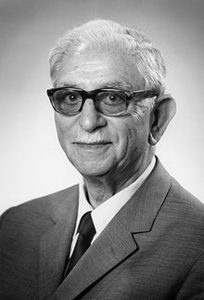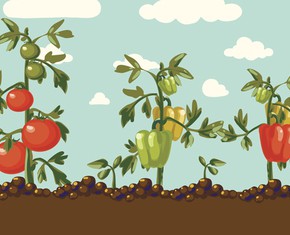The views expressed in our content reflect individual perspectives and do not represent the authoritative views of the Baha'i Faith.
Throughout human history, the most bountiful knowledge seems to emerge from some of the more aged exemplars of wisdom.
That’s certainly no surprise: with age comes wisdom. We definitely do not discount or disregard any amazing insights about reality because the ones who utter them happen to be longer physically elegant or dexterous.

Shu’a’u’llah Ala’i
For example, I remember listening to a talk given by a wonderful Baha’i named Shu’a’u’llah Ala’i shortly before he passed away in 1984. Mr. Ala’i was a Hand of the Cause of God—a title given certain individuals appointed by Baha’u’llah and later by Shoghi Effendi to protect and propagate the Baha’i Faith—and when I saw him he was wracked with age, barely there at all, truly a “tattered coat upon a stick” until I heard his soul clap it hands and sing.
Two men carried him to a stage and set him down in a chair before a crowd of several thousand. His face was drawn and withered. His eyes seemed unfocused and his aspect bewildered. Then he began to speak, and we were astounded that so mighty a voice could emanate from such a slight, aged frame. Sentence by sentence we became mesmerized by his power as he analyzed the present times in terms of the destiny of humankind.
He catalogued the indices of the decline of society, and filled our hearts with expectation about the glorious future that could be ours—if we would plant the seeds of faith in the rich soil of the hearts of waiting souls, the plant of world reformation would soon emerge.
It was incredible. As he spoke and as we became by stages astounded, then entranced, then inspired, and then empowered, we no longer marveled at the physical dimension or age of this frail man. He became his voice, which seemed to emanate from another realm. The years seemed to melt away from his eyes, and his countenance seemed to glow with power and authority. The slight frame that had seemed so lamentably weak gradually assumed a stature that the mightiest potentate might envy.
I will never forget that experience, that firsthand empirical evidence of how a physical apparatus so maimed by age, so tattered by life and the ravages of time, could yet be employed by so grand a spirit as a vehicle for spiritual power and inspiration and insight.
Afterwards, I really never required further proof of the non-locality of the soul. Even more weighty, perhaps, was my instant understanding of how the divinely ordained process of aging can, if we allow it, peel away bit by bit our attachment to the ephemeral, temporary things of this world, whether it be our vanity about ourselves and our appearance, or whether it be our reliance on the trivial pursuits that distract us from the path we are fashioned by God to follow:
Man must be a lover of the light, no matter from what dayspring it may appear. He must be a lover of the rose, no matter in what soil it may be growing. He must be a seeker of the truth, no matter from what source it come. Attachment to the lantern is not loving the light. Attachment to the earth is not befitting, but enjoyment of the rose which develops from the soil is worthy. Devotion to the tree is profitless, but partaking of the fruit is beneficial. Luscious fruits, no matter upon what tree they grow or where they may be found, must be enjoyed. The word of truth, no matter which tongue utters it, must be sanctioned. Absolute verities, no matter in what book they be recorded, must be accepted. – Abdu’l-Baha, The Promulgation of Universal Peace, pp. 151-152.
















Comments
Sign in or create an account
Continue with Googleor